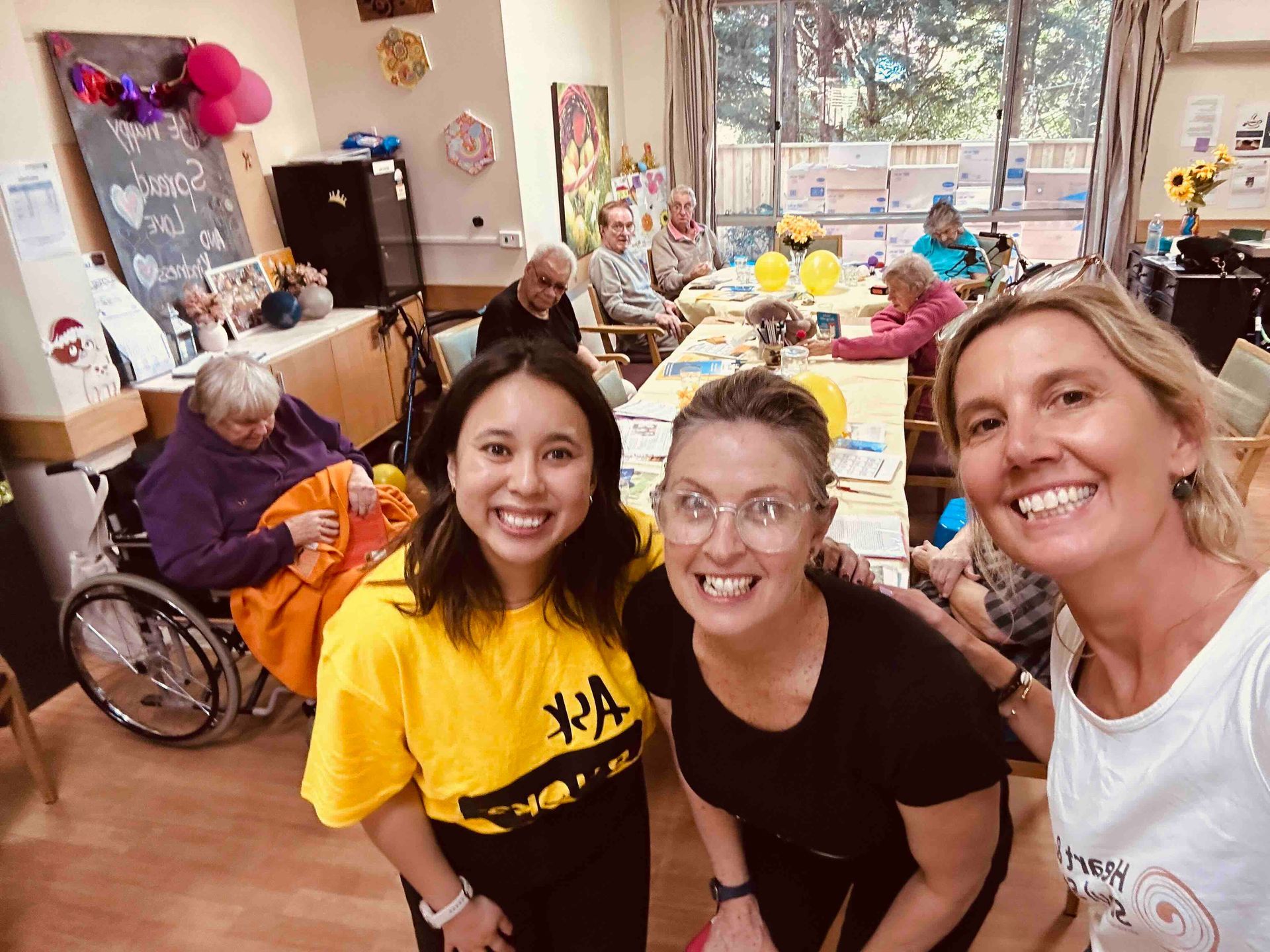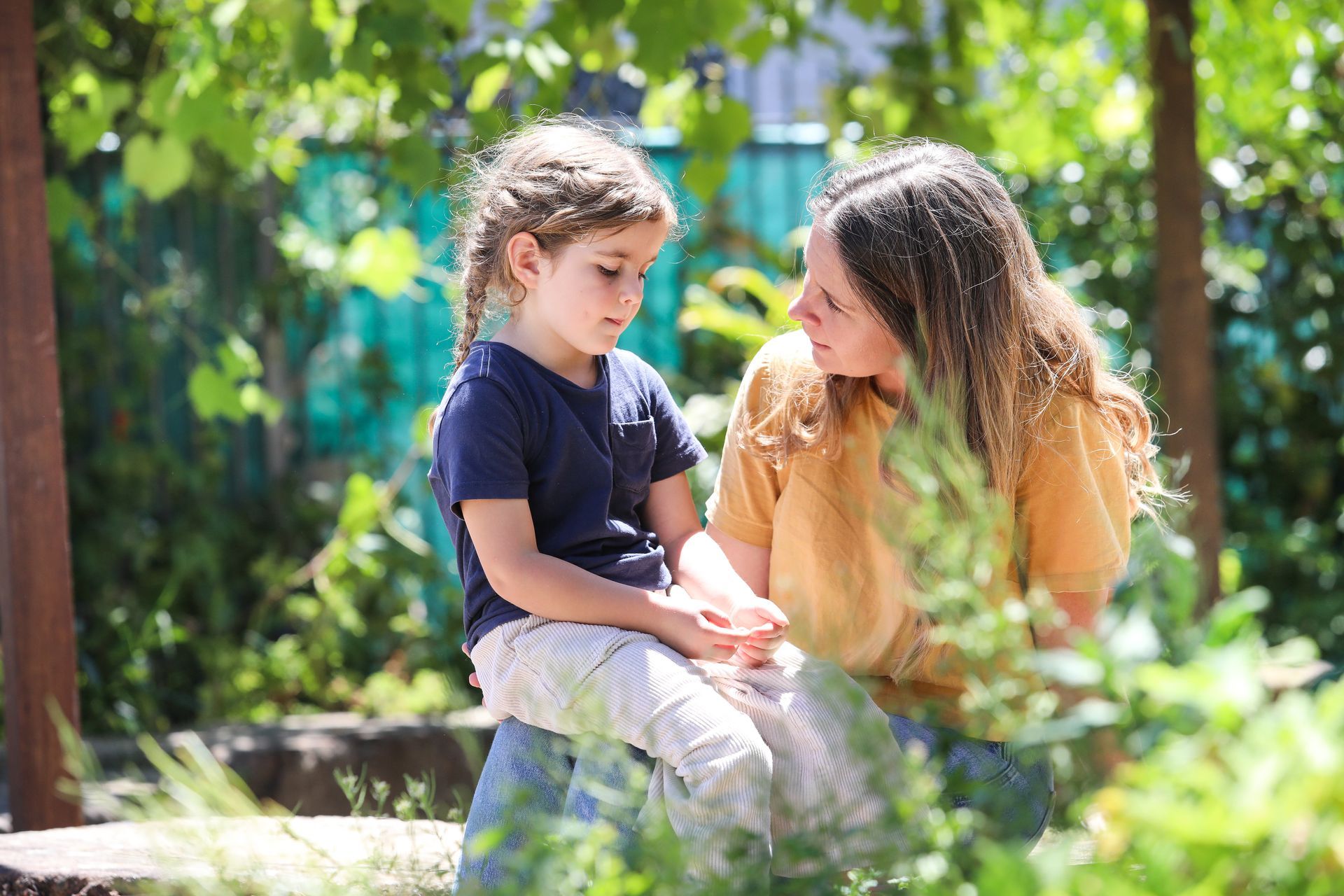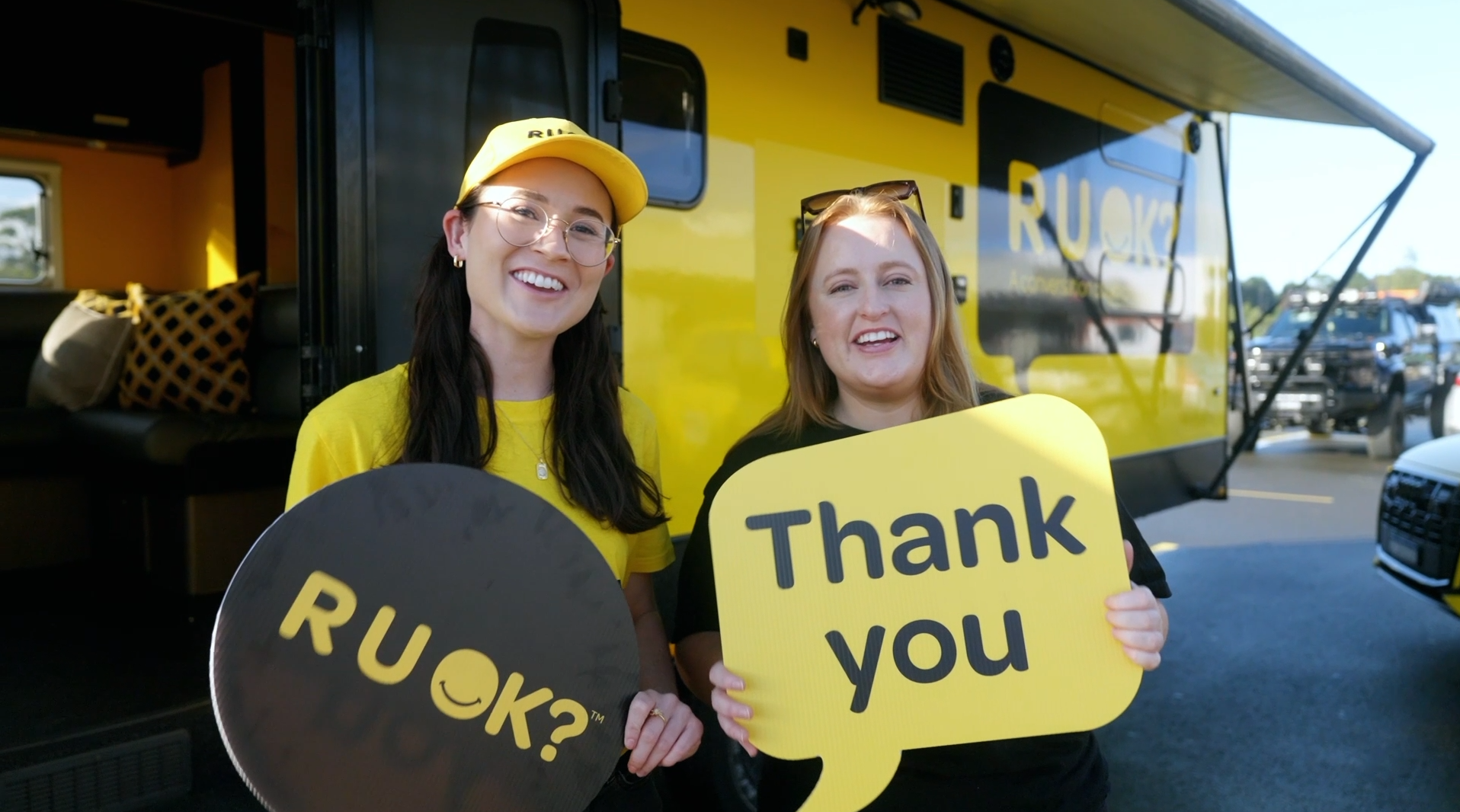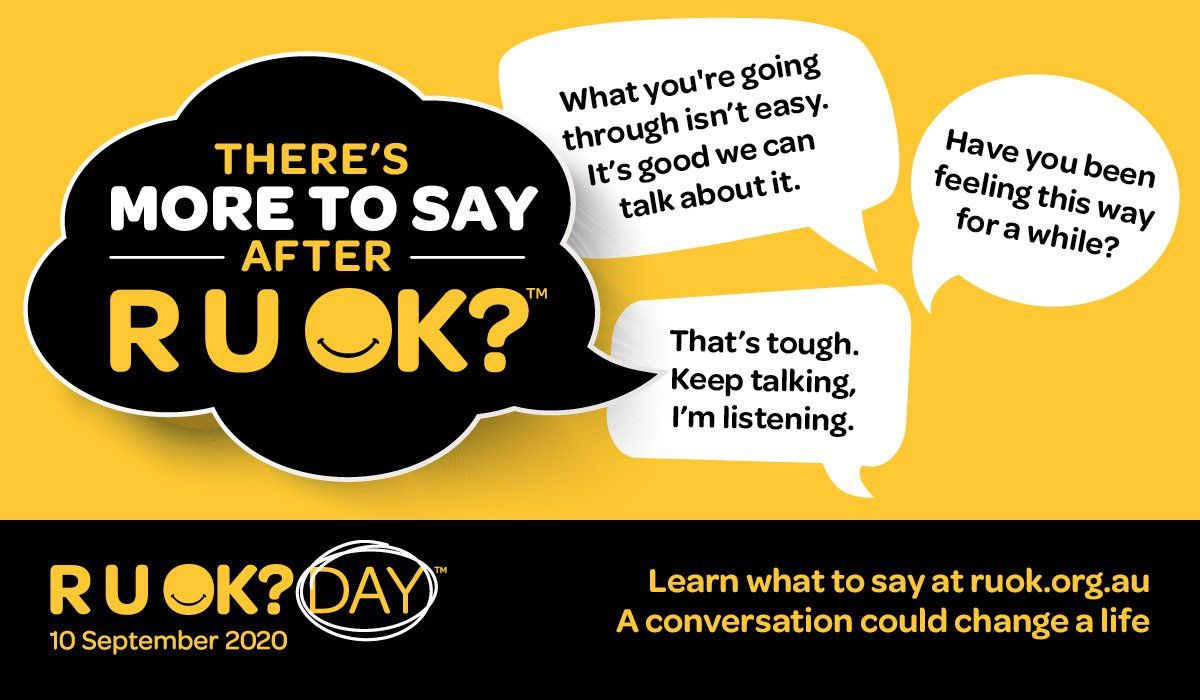There's more to say after R U OK?
R U OK? is asking all Australians to learn what to say if someone in their life says they are not OK.
‘There’s more to say after R U OK?’, is the message for R U OK?Day 2020 (on Thursday 10 September) and will focus on building confidence and increased skills for people so they know how to navigate a conversation with someone in their life who might be struggling.
Katherine Newton, CEO, R U OK?, says 2020 has been a challenging year for everyone and circumstances have made it even more important for us all to stay connected and, for those who are able, be willing to support those around us.
“Time is one of the most valuable things we can share with the people that we care about,” said Ms Newton. “When someone in your life is struggling it’s natural to ask them if they’re OK but it can sometimes be difficult to know what to say next.
“Our free resources include a conversation guide to help people learn what to say after “Are you OK?” and help break down any fears or concerns someone might be feeling when approaching a meaningful conversation with a family member, friend or colleague who might be doing it tough.
“You don’t have to be an expert to keep the conversation going and if you familiarise yourself with what to say after hearing ‘No, I’m not OK’ you can show genuine intent and genuinely help someone access appropriate support long before they’re in crisis.” said MsNewton.
RUOK? is encouraged by its recent data that demonstrates Australians increasingly understand how important it is for them to reach out to those around them who might be struggling.
“Our latest evaluation measures show that most people feel confident they know how to have a conversation with someone who might be struggling with life but 31% of Australians lack confidence or are unsure how to have a conversation with someone who is not OK,” says Ms Newton. “We want to help them learn what to say after R U OK? because a conversation could change someone’s life.”
”This year R U OK?Day coincides with World Suicide Prevention Day which will further raise awareness of the scale of suicide globally and the role that each of us can play in prevention efforts.
Resources including a Guide to Supporting R U OK?Day
are free to download from the R U OK? website and are designed to help individuals, workplaces, schools and community groups plan for R U OK?Day which this year may look different for some given the impact of COVID-19. The guide has tips, ideas and resources to help share the R U OK? message virtually and in person.
“If you feel something’s not quite the same with someone you know - perhaps you’re aware of a significant life event they are experiencing right now or you notice a change in what they’re saying or doing - take the time to genuinely ask them “Are you OK?”
“We want Australians to be confident in having a meaningful conversation and if someone says they’re not OK, make time to listen with an open mind, encourage action and regularly check in.”
‘There’s more to say after R U OK?’ Learn what to say next at www.ruok.org.au






















